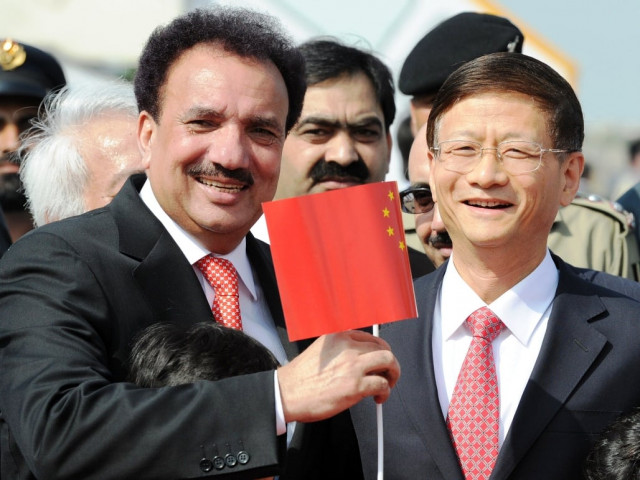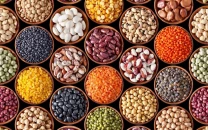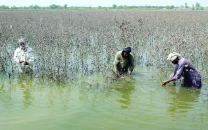Chinese vice prime minister arrives in Islamabad
Pakistan, China, Saudi intelligence officials to meet in Islamabad later today.

Jianzhou will meet President Asif Ali Zardari, Prime Minister Yousaf Raza Gilani and the political and military leadership during his visit.
The talks will focus on bilateral relations, the regional situation and matters of mutual interest.
Jianzhou was received at the airport by Interior Minister Rehman Malik and Pakistan's Ambassador to China Masood Khan.
Saudi, Chinese and Pakistani intelligence officials to meet in Islamabad
A trilateral meeting between intelligence officials from Saudi Arabia, China and Pakistan will held in Islamabad today, Express 24/7 reported.
The trilateral meeting between officials will focus on United States (US) allegations against Pakistan and the future course of action in this regard.
Earlier, Director-general (DG) ISI Lt General Ahmad Shuja Pasha met Saudi officials at Chaklala base.
Sources said Saudi officials had conveyed a positive signal of considerable support to ISI officials during the meeting.
Updated from print version (below)
Looking east: Islamabad takes heart from Chinese leader’s visit
Pakistan’s diplomatic efforts to counter growing American pressure might get a rare boost when Chinese Vice Prime Minister Meng Jianzhu arrives in Islamabad on Monday to discuss regional security, officials said.
“The visit (by the Chinese leader) has a symbolic as well as substantial value … it will definitely send a message across the Atlantic,” an official at the foreign ministry said, describing the tour as a big relief for Pakistan.
A spokesperson for the ministry, however, apparently made an attempt to downplay the trip, saying it was prescheduled and in the context of the 60th anniversary of Sino-Pak friendship.
(Read: Pakistan-China relations)
“It is a very important visit … but it doesn’t have to do anything with other developments taking place in the region,” Foreign Office Spokesperson Tehmina Janjua told The Express Tribune.
She said Meng, who also holds the portfolio of state security, would be meeting President Asif Ali Zardari, Prime Minister Yousaf Raza Gilani and other functionaries.
Officials said the Chinese vice premier is also scheduled to meet military chief Ashfaq Parvez Kayani and Director-General of the Inter-Services Intelligence agency (ISI) Lt-Gen. Ahmed Shuja Pasha.
At a news conference on Monday, Interior Minister Rehman Malik said the visiting Chinese leader, who is his counterpart as well, is coming to Pakistan on an invitation extended by him and that the two will be meeting.
Malik said talks between him and Meng would focus on those Chinese separatists who were arrested by Pakistani law enforcers and handed over to authorities in Beijing.
Officials said China had assured Pakistan of diplomatic and economic support in case the US kept piling up pressure on Islamabad for its alleged inaction against the Haqqani network, a group of Afghan militants allegedly based in Pakistan’s North Waziristan tribal region.
“Short of physical intervention, they (Chinese) are willing to stand by Pakistan by all means,” said General (retd) Hamid Gul, a former head of ISI who returned from a week-long visit to China over the weekend.
Experts say the support from China or lack of it would determine how well Pakistan can hold its nerves together in the face of mounting US pressure in the run-up to the Afghan endgame.
(Read: The irony of Afghanistan and the real endgame)
Meng is also likely to take part in some ceremonies scheduled to be held in connection with the 60th anniversary of Pakistan-China friendship and will be meeting heads of various political parties.
Published in The Express Tribune, September 26th, 2011.



















COMMENTS
Comments are moderated and generally will be posted if they are on-topic and not abusive.
For more information, please see our Comments FAQ